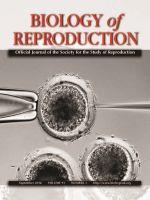Peroxisome proliferator-activated receptor delta (Ppard) activation has been implicated in regulating a multitude of biological processes in placental development. In this study, we employed the UPLC-ESI-TOFMS approach to investigate the metabolic traits in placenta from GW501516-treated mice at Embryonic Day 10.5. By analyzing the mass spectrum data, ions with the most significant differences between control and GW501516-treated groups were identified. Among these metabolites, the fatty acids, phospholipids, and sterol lipids were dramatically increased. Ingenuity Pathway Analysis (IPA) showed that phosphatidylethanolamine biosynthesis and glycolysis were the top two altered metabolic pathways involved in carbohydrate metabolism, energy production, and lipid metabolism. Subsequent immunoblotting experiments provided evidence for positive correlation of PPARD level and AKT and ERK signaling pathways upon GW501516 treatment. Furthermore, the stimulation of GW501516 increased trophoblast cell fusion gene syncytin-A (Syna), but not syncytin-B (Synb), expression, suggesting a potential role of Ppard activation in promoting cytotrophoblast differentiation. Our results reveal that Ppard activation elicits dramatic changes of the metabolic activities in placenta, which is correlated to AKT and ERK signaling.
How to translate text using browser tools
11 June 2014
Activation of Peroxisome Proliferator Activator Receptor Delta in Mouse Impacts Lipid Composition and Placental Development at Early Stage of Gestation
Hongjuan Ding,
Yiyu Zhang,
Lun Liu,
Hongyan Yuan,
Jian Qu,
Rong Shen

Biology of Reproduction
Vol. 91 • No. 3
September 2014
Vol. 91 • No. 3
September 2014
metabolism
peroxisome proliferator activator receptor delta
placenta
Ppard
pregnancy
signaling pathway
UPLC-ESI-TOFMS approach




